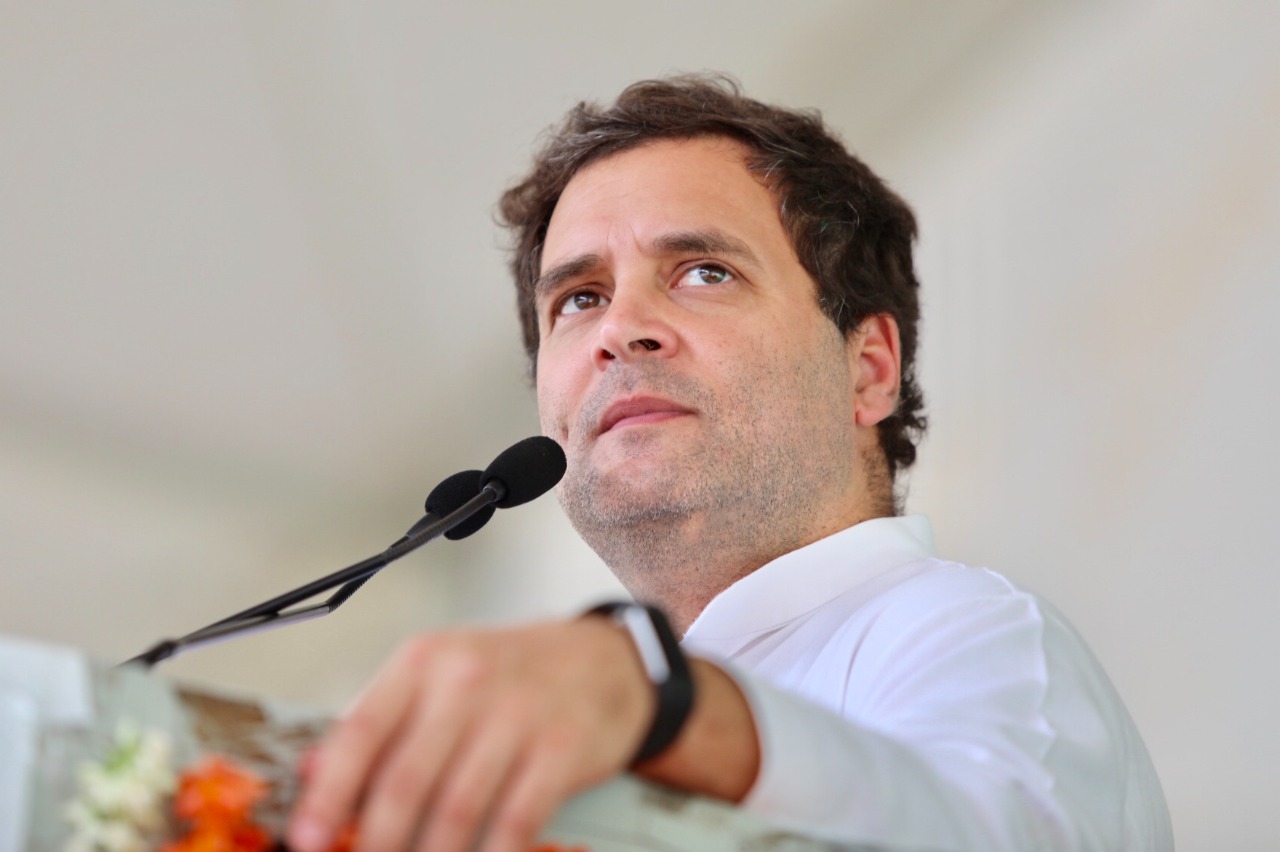


Prime Minister Narendra Modi took a dig at Congress leader Rahul Gandhi for his recent comment on Rajas and Maharajas being "land grabbers", stating that Gandhi's statement showed the party's "mentality of appeasement". PM Modi also accused the Congress of ignoring the atrocities committed by Mughal emperor Aurangzeb and other nizams-nawabs and sultans in Indian history. He further criticized the Congress for opposing important developments in the country and misleading citizens on various issues.
Aurangzeb and Congress: A Historical Feud with Modern Repercussions
Historical Context:
Aurangzeb (1658-1707) was the sixth Mughal emperor, known for his religious intolerance and expansionist policies. He imposed strict Islamic laws, suppressed non-Muslim faiths, and expanded the Mughal empire to its greatest extent. His reign marked a period of significant conflict with Hindu and Sikh rulers, leading to widespread resentment and rebellion.
Recent Controversies:
In recent years, Aurangzeb's legacy has become a subject of political debate in India. Prime Minister Narendra Modi has accused the main opposition party, Congress, of appeasement politics by downplaying the atrocities committed by Aurangzeb and other Muslim rulers.
Gandhi's Comments:
In 2022, Congress leader Rahul Gandhi drew criticism for his comment that Rajas and Maharajas were "land grabbers." Modi seized upon this statement, alleging that it reflected Congress's anti-Hindu bias and its reluctance to acknowledge the historical wrongs committed by Muslim invaders.
Government's Response:
The Modi government has launched a campaign to highlight Aurangzeb's crimes. In 2021, it inaugurated a museum in Maharashtra to showcase the emperor's brutality towards non-Muslims. The government has also promoted initiatives to honor the contributions of Hindu rulers.
Top 5 FAQs:
1. Why is Aurangzeb a controversial figure in Indian history? He is known for his religious intolerance, destruction of Hindu temples, and suppression of non-Muslim faiths.
2. What is Congress's position on Aurangzeb? Congress has been criticized for downplaying Aurangzeb's atrocities and fostering appeasement politics.
3. How has Modi's government responded to this controversy? It has launched initiatives to highlight Aurangzeb's crimes and promote the contributions of Hindu rulers.
4. What is the relevance of Gandhi's comments to this issue? Gandhi's remarks on Rajas and Maharajas have been interpreted as a sign of Congress's bias against Hindu rulers and its disregard for their sacrifices.
5. What is the broader impact of this debate? It has deepened the political divide in India and raised questions about the role of religion and history in modern-day politics.

As India celebrates National Unity Day on October 31, we remember Sardar Vallabhbhai Patel, the man who played a crucial role in bringing together the 562 princely states with the Union of India. Born in Gujarat on the same day in 1875, Patel's efforts, along with Vappala Pangunni Menon, ensured that most of these states merged with India. Despite facing challenges and resistance, Patel's determination and use of tactics such as introducing the concept of privy purse led to the successful integration of these states. We pay tribute to the legacy of Sardar Patel, known as the "Iron Man of India" on this occasion of National Unity Day.

On the 150th birth anniversary of Sardar Vallabhbhai Patel, known as the "Iron man of India", political leaders from across the country gather to pay tribute to his role in unifying India after Independence. Prime Minister Narendra Modi takes a pledge of unity at the Statue of Unity in Gujarat and announces a special commemorative coin and stamp as a tribute. President Droupadi Murmu also offers her greetings and describes Sardar Patel as a great patriot and nation-builder, urging citizens to unite and build a strong and harmonious India on National Unity Day.

On October 31st, India celebrates Sardar Vallabhbhai Patel Jayanti, the birth anniversary of the Iron Man of India. Known for uniting over 560 princely states after Independence, Sardar Patel's courage, foresight, and unwavering dedication shaped India's foundation. From speeches to parades, here's how people across the country remember him and his legacy of unity.

Vice President JD Vance, who is married to Usha Vance, shared insights on how they navigate their different religions within their household. During a Q&A session at a Turning Point USA event, Vance was asked about teaching their children to balance their faiths and why Christianity is seen as a requirement to show love for America. Vance, who converted to Catholicism in his 30s, candidly shared that when they got married in 2014, neither he nor his wife were particularly religious, but he later found a strong connection to his faith. They now have three children together.

A political controversy has erupted in Assam over the recitation of Tagore's poem at a Congress meeting, with BJP and Congress trading accusations. Meanwhile, commerce minister Piyush Goyal has stated that significant progress has been made in talks to finalize the India-EU Free Trade Agreement. On the campaign trail, BJP leaders Amit Shah, Rajnath Singh, and Yogi Adityanath have targeted the INDIA bloc, accusing them of dynastic politics and invoking memories of the "jungle raj" during RJD's rule. And finally, an AI-generated live blog by Indian Express has been shared with the disclaimer that it has not been edited by their staff. Stay updated by following their Instagram account for more news.

In a major decision, the Cabinet has approved the formation of the 8th Central Pay Commission, chaired by former Supreme Court judge Ranjana Prakash Desai. The pay panel will submit an interim report and make its final recommendations within 18 months. It will consider the economic conditions of the country and the need for fiscal prudence while keeping in mind the emolument structure and benefits of the private sector. This move is expected to benefit 50 lakh central government employees and 69 lakh pensioners.

Union Home Minister Amit Shah has announced that the 'Bharat Parv 2025' will be celebrated nationwide from November 1 to 15 to mark the 150th birth anniversary of Sardar Vallabhbhai Patel. A grand parade will be held every year on October 31 at Ekta Nagar, Gujarat, with the participation of central paramilitary forces and state police. Prime Minister Narendra Modi will lead the first parade this year, along with commemorating tribal leader Birsa Munda at the Statue of Unity. Shah also highlighted the achievements of the current government, including the successful construction of the Statue of Unity and the plans for schools and colleges to organize a 'Run for Unity' to honor Patel's enduring legacy.

A school teacher and YouTuber from Nagpur, Rohit Arya, led a daring protest against the Maharashtra government for withholding his funds. In a shocking turn of events, he allegedly kidnapped 17 children and two others, and held them hostage inside a studio in Powai for six days. After failed negotiations, police forcefully entered the studio and rescued the children, while Arya was shot and later declared dead. In a video released before the children were rescued, Arya claimed he simply wanted to speak to certain people and had "moral demands" without specifying what they were.

Vice President J D Vance and Second Lady Usha Vance traveled to Camp Pendleton to attend a ceremony commemorating the 250th anniversary of the United States Marine Corps. The event serves as a reminder of the Marine Corps' long-standing role in American defense and global security, as well as honoring the sacrifices made by past and present Marines. This visit demonstrates the Trump administration's efforts to strengthen ties with the armed forces, with a particular focus on the highly respected Marine Corps.

Erika Kirk, wife of the late Turning Point USA founder Charlie Kirk, has started her campus tour at the University of Mississippi with Vice President JD Vance. They spoke at the "This Is the Turning Point" event, where Kirk shared her husband's message of reclaiming territory and standing up for truth in the face of tragedy. Vance also addressed hot-button issues such as immigration and the government shutdown, reiterating his role as vice president to prioritize the interests of the United States.